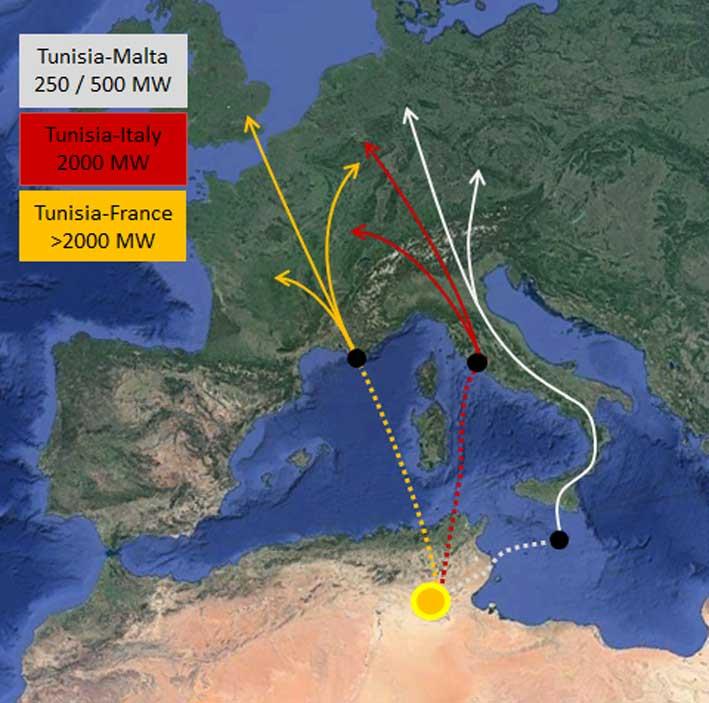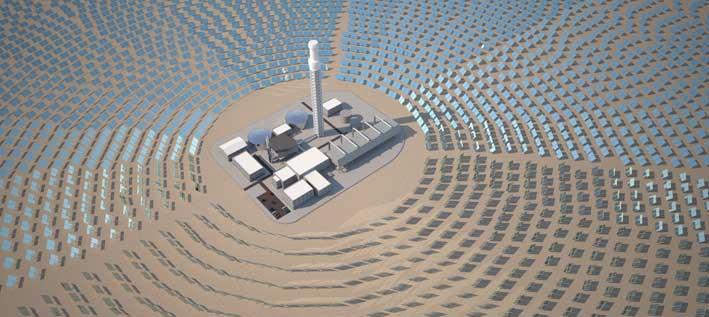Malta could be importing as much as 4.5 gigawatts of solar energy from the Sahara desert by 2020 if plans drafted by solar energy company TuNur Limited for the construction of an enormous solar farm - about the size of Malta itself - are approved by Tunisian authorities.
TuNur Limited is a private company incorporated in the United Kingdom. Its principal shareholders are solar power plant developer Nur Energie Limited, and Tunisian and Maltese investors, including Zammit Group.
The company plans to export solar energy through three HVDC submarine cables. According to the company, the first phase will be the Tunisia-Malta cable.
The company explained this week how "the first cable will link Tunisia and Malta, as Malta is already connected to the European energy grid, and this will help reinforce Malta's position as an energy hub in the centre of the Mediterranean."
If all goes according to plan, the Malta cable is expected to be up and running by 2020.
The second cable system will link Tunisia to central Italy, with a shoring point north of Rome. This second cable system has been under development for several years and is currently being evaluated as a Project of Common Interest by the European Community. A third cable is also under study and will link Tunisia directly to the south of France.

TuNur's solar farm will be a concentrated solar plant, using mirrors to reflect sunlight onto a central collector containing molten salt, which can store the solar energy as heat. This particular type of solar farm has the advantage of being able to store energy for longer, helping to offset power fluctuations from the rest of the EU's clean energy portfolio.
The company says the project "will target Europe's increasingly urgent challenges in the energy sector: meeting the Paris Climate Agreement emissions reduction targets, replacing obsolete fossil fuel and nuclear power plants, reducing reliance on imported fossil fuels, and meeting the expected surge in electricity demand from electric vehicles."
The solar energy produced will be enough to power over five million European households or to fuel over seven million electric vehicles.

TuNur CEO Kevin Sara said this week: "The economics of the project are compelling: the site in the Sahara receives twice as much solar energy to sites in central Europe; thus, for the same investment, we can produce twice as much electricity. In a subsidy-free world, we will always be a low-cost producer, even when transmission costs are factored in."